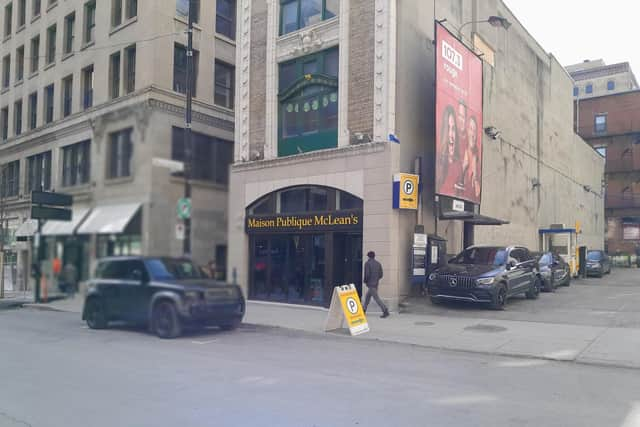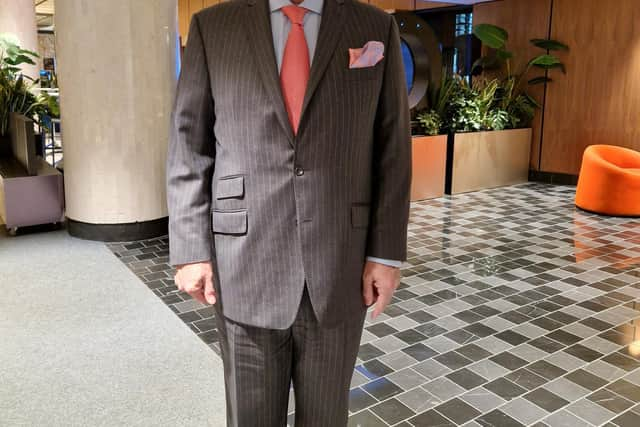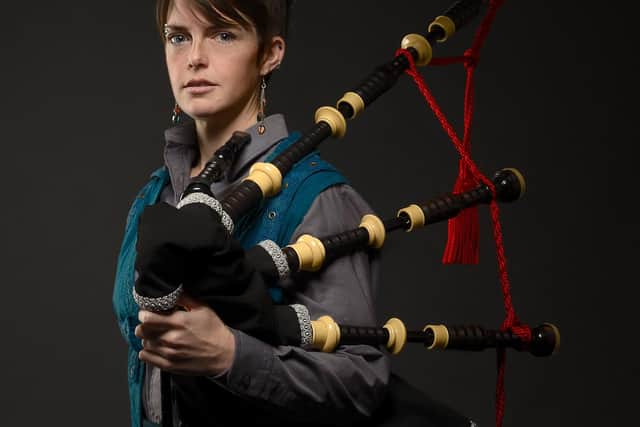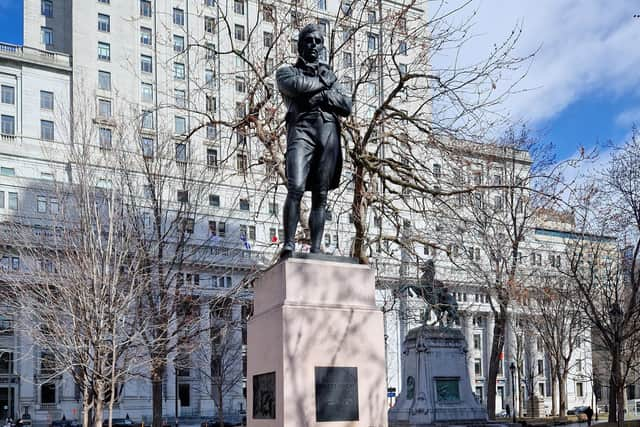How Montreal's Scottish heritage has led to a resurgence of interest in Scots culture in the Canadian city
When Canadian businessman Scott Mackenzie treated himself to his first visit to Scotland after he graduated from university more than 40 years ago, he headed to the city where his great grandfather had lived: Inverness.
"I planned to go to the cemetery there and just look for gravestones with the name Mackenzie on them,” he remembers. “I’ll let you guess how that worked out.”
Advertisement
Hide AdAdvertisement
Hide AdNow, he is president of the St Andrew’s’ Society of Montreal, a Scottish cultural centre, which holds monthly events from an annual Burns’ night supper to a ball, to celebrate Scotland and its role in the founding of the city in Quebec, Canada - as well as running the city’s annual Highland Games. His family, despite continuing a tradition of strong Scottish names, had always embraced their new status as Canadians, rarely looking back to their Scottish roots.


"My father never wore a kilt until the year before he died - because I put one on him - and my grandfather, to my knowledge, was never involved in anything Scottish,” he says. “As with a lot of immigrants, they don't necessarily want to get right back into the culture where they just left, they want to start a new life.”
That changed when, aged 50, he attended the Montreal Highland Games for the first time.
"We were in town for the Highland Games, that year, so, I said to my wife that we should take the boys.”
There, he met like-minded members of the Scottish diaspora and began to volunteer for both the games and the St Andrew’s Society, which is the last remaining of at least three Scottish cultural organisations originally running in the city by the founding fathers. The society, historically, raises funds to help Scots in Montreal – which in recent years has expanded to donate to charities with a Scottish heritage, such as the Montreal Neurological Institute and the Douglas Hospital, which were both founded by Scots.


"It's just for the fun but we also do good things, so it's a neat cause to be behind because it does touch the lives of many people in Montreal,” he says.
“It's also an excuse for me and my boys to wear kilts.”
A short walk from where I meet Mr Mackenzie in downtown Montreal is McGill University, founded by Scottish fur trader, James McGill, in 1821. Just down the street is Dorchester Square, where a statue of Robert Burns stands proud in the centre, while many of the surrounding streets, created in an architectural style reminiscent of the Victorian tenements of Edinburgh, are named after other Scots who had a hand in the creation of Montreal, while there are numerous Scottish pubs with names such as “Maison Publique McLean’s”.
In 2017, the society created the Montreal 1642 Tartan, to commemorate the founding of the city 375 years earlier.


Advertisement
Hide AdAdvertisement
Hide Ad“People think of us in Montreal as French, but we’re not only,” he says. “We Scots been here just as long – or maybe not quite as long – as the French but pretty much everybody else. We want to get to the fact that we are one of the founders of the city of Montreal.”
During lockdown, the society created a “Pandemic Pipers” video series, using drones to record pipers playing in deserted parts of Montreal with links to the Scottish community.
One of those pipers is Jenna Dennison, an American-born Quebecois with Scottish heritage, who took up the bagpipes aged 15 after a trip to Canada’s maritime provinces.
"I was just drawn to it,” she says. “I don’t think I would have become a piper if we hadn’t ended up in Montreal. There aren’t any pipers or drummers in my family, that wasn’t anything I knew. It was about seeing that Celtic heritage and as a teenager, getting in touch with my own heritage. It was about finding an identity in what made me different and what was unique to our family.


“After we got back to Montreal from that road trip, I found a pipe teacher, an old Scotsman called Ian MacLeod. My 16th birthday present was a set of pipes.”
Now Ms Dennison makes a full-time career out of piping: teaching at the not-for-profit Montreal Piping and Drumming School and playing at weddings, graduation ceremonies and other events, as well as the renowned Oglivy’s department store – now known as Holt Renfrew Ogilvy’s after merging with another department store chain – which was forced to bring back its bagpipe performances after axing the daily tradition during a refurbishment in 2017.
"One of the first times I saw a piper up close was at Ogilvy’s, I must have been around 11. Seeing him coming down the escalators, through the store at lunchtime, like he always did. I didn’t think at that point that that would ever be me, but I was interested, it drew me in.
"I’m both proud and astonished to say I live full time off the bagpipes now.”
Advertisement
Hide AdAdvertisement
Hide AdThe shop featured a daily piping performance since 1945, when businessman Aird Nesbitt launched a series of Scottish traditions including tartan shopping bags and store packaging to mark the store’s founder, James Angus Ogilvy, who founded the business after emigrating to Canada from Kirriemuir in the 1860s. After the stores decided to cut the daily piping, a petition was launched in protest. It now hires Ms Dennison to perform around once a month.
"I like Ogivly’s because I play whatever I want,” she says, explaining that she has arranged music by Rick Astley and Ozzy Osbourne for the pipes. "I’m not in a band, I’m not doing a parade or a very traditional thing, so I get liberty. It’s so much fun.”
She has also visited Scotland to play the pipes, including a performance for the Queen at Balmoral Castle, with the Sons of Scotland Pipe Band and plays in various ones of the five pipe bands in the Montreal area.
Not a traditional piper, as a young woman who often dresses in a magenta coloured kilt for her performances, Ms Dennison admits she likes to “push the boundaries”.
"Being a piper out in public, it’s got such a wow factor to it,” she says. “So often, the reaction I get is ‘Oh, you’re not what I pictured.’ People are surprised by the outfit I wear, for the fact that I’m me. It’s fun.
"I want to keep piping alive and show people that it doesn’t have to be that stereotype, it doesn’t have to be the middle aged military guy playing Scotland the Brave or Amazing Grace.
"The bagpipes are such a uniquely connected instrument to history, to traditions, I find something so interesting and inspiring with juxtaposing that with new music and new expressions.”
Comments
Want to join the conversation? Please or to comment on this article.
